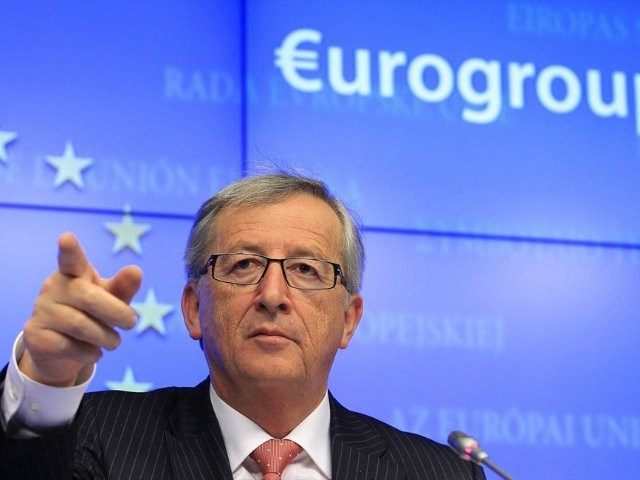European Commission President Jean-Claude Juncker has dealt a wounding blow to David Cameron’s hopes of successfully renegotiating Britain’s EU membership. The former Luxembourg Prime Minister compared Britain’s membership of the political bloc to a doomed romance and suggested that now might be the time to get a divorce, according to the Telegraph.
The consistent line from the European Commission, which is the ‘government’ of the EU, as well as senior EU leaders including Angela Merkel, is that free movement of people is not up for discussion.
And the latest statements, given in a speech in Paris, are no different, with Mr Juncker saying “When one mentions the end of the free circulation of workers, there can be no debate, dialogue or compromise.”
In an obvious reference to David Cameron’s campaign to secure real change from Brussels, he said, “we can fight against abuses but the EU won’t change the treaties to satisfy the whim of certain politicians.”
“People shouldn’t stay together if the conditions aren’t the same as when things started. It’s easy to fall in love and more difficult to stay together.”
It is the first time Mr Juncker has openly said that Britain could leave the EU in public, and he made certain his words would not be confused by reiterating that he could not get down on his knees and beg Britain to stay.
“I am for the respect of member states, respect between the institutions and member states. I am against all forms of grovelling.”
The news comes as the General Election campaign has already started, with opinion polls showing a narrow lead in support for a British exit ahead of May.
Should Mr Cameron not come out of early talks appearing a strong and decisive leader, proving that Britain does hold influence around the European table, it will play straight into the hands of Nigel Farage and UKIP, who are looking to add to the two MPs they currently have on the green benches.
Mr Farage said Mr Juncker’s refusal to discuss free movement meant Britain leaving the EU would become inevitable after a referendum, with Mr Cameron unable to show he had secured real change.
“Juncker has made it crystal clear there will be no change to the EU doctrine of free movement and mass immigration,” he said. “We want an amicable divorce and a trading relationship to follow.”
At the beginning of the year Mr Cameron said that the “question of immigration” would “require Treaty change.”
He is expected to lay out the changes he is looking to secure following a meeting of the European Council on February 12th.
His words will not be welcomed by Conservative Eurosceptics who are banking on the Prime Minister being able to make concrete reforms.
Bernard Jenkin, whose seat of Harwich and North Essex is seeing an increasing support for Farage’s ‘People’s Army’ said Juncker’s language was ‘at odds’ with what British voters wanted.
“Europe should be about how we recognise each other’s differences yet learn to cooperate, not about dividing Europeans between true believers and heretics,” he said.
“This is the language of dictatorship by the elite, not of democracy and consent.”
But an increasing number of people are seeing the EU as the dictatorship which doesn’t meet the needs of 21st century Britain and Mr Jenkin’s comments may be wishful thinking for a population that believes reforms are possible and that Mr Cameron is the man who can achieve them.

COMMENTS
Please let us know if you're having issues with commenting.